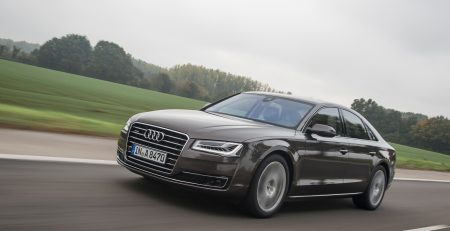London announced a T-charge from late 2017 for Euro 4 (EU4) vehicles, while Stuttgart banned Euro 5 too. Will London step u read more
Is leasing the car dealers hidden secret?
Personal Contract Hire or Leasing is a growing product with attractive low payments
More importantly is it the right product for you? We compare the two most popular financing solutions for new cars. Personal Contract Hire (PCH) vs Personal Contract Purchase (PCP).
Specify your car to compare the costs.
Highlighting the benefits to your personal cashflow we looked at one of our special offers:
Passat Saloon 2.0TDi GT manual with metalic paint over 3 years, 10,000 miles/year
| PCP | PCH | |
|---|---|---|
| Initial payment | £5,325 | £1840 |
| Mileage | 10k | 10k |
| Monthly payment | £396.83 | £205 |
| After term | £11,790 or return car | Return Car |
| APR | 6.50% | N/A |
£10,800 less in payments vs PCP finance over three years. This is, more than our forecast £10,793 value at 36 months old and 30k miles on the clock! PCP example from Volkswagen Solutions PCP, All prices include VAT and are available to both personal and business users, excess mileage fees apply.
PCH – leasing not buying
Contract Hire is just a long term rental agreement. There is no option to own and no equity in the car. Leasing companies pay the lowest price to buy cars and borrow money at bank rates, typically meaning low monthly payments for the customer.
You pay the monthly payments for the agreed term, then return the car to the finance company.
Annual mileage is fixed up front with an excess mileage fee. The exact cost varies significantly between finance houses.
Contract Hire is popular with businesses due to the accounting advantages. Personal Contract Hire is now also seeing growth as many individuals are happy to pay for car usage monthly and do not wish to own.
You set the timeframe, and when it expires you decide what the best car option is again.
What to watch for!
PCH is a relatively inflexible agreement. You fix the term and mileage up front. If you are overestimate you will pay more per month than you need to, if you underestimate you will be charged excess mileage. You do not benefit from any equity in the car at the end of the term.
You cannot change cars early. For instance, if there is a change in circumstances meaning you want a bigger/smaller/cheaper car. You would need to pay the lease termination charge. There is no regulated calculation for this charge. In some cases it will be the total of the remaining rental payments. Compare this with PCP which allows for full repayment at any time.
The above also applies if you end the contract due to theft or accident.
If the car is not in good condition when returned, you will incur charges.
If you want to make any modifications to the car eg adding a tow bar, you will need the contract hire company’s permission. They will consider if they can allow this based on the impact on the value of the car at end of the contract.
APR is not quoted on contract hire, so it is not always clear what you are paying for the finance. Comparison with an equivalent PCP quote may assist.
Contract Hire providers may not deal with part exchange. You can sell your current car through a car buying service or independently to a dealer or individual.
When it works well
If you are happy to fix a term and mileage.
If you do not wish to own the car, or keep the car longer or shorter than the agreed term.
The monthly numbers may be lower as often cars are more heavily discounted through contract hire and there is no equity built in to the deal.
Compare with PCP where typically 10% equity is factored in to the calculation, to minimise the likelihood of returning the car to the lender and to allow for changing to another car before the end of the term.
PCP
Personal Contract Purchase is a relative new comer to the car finance market, but accounts for most car purchase transactions.
PCP gives you the option of ownership if you repay all the required payments under the finance agreement.
It is a regulated consumer finance agreement, which gives you enhanced protection and rights of early repayment. The interest rate is always quoted as an APR to allow you to easily compare across products.
With PCP there is a balloon at the end of the term, which is calculated based on the expected value of the car at the time – this varies by car, trim, options, term and mileage. Typically some equity is factored in to the calculation, to allow you to change early, or to give you a deposit towards the next car.
PCP also gives you the guarantee that you can hand the car back at the end of the term instead of paying the final payment if you wish, however in most cases the car will be worth more to sell or part exchange.
What to watch for!
You need to fix an annual mileage up front. This determines the guaranteed final value. If you exceed your annual mileage the car may be worth less than the final payment or you would incur excess mileage charges should you decide to exercise the option to return to the lender.
You benefit from any equity in the car at the end of the term. If the car is worth more than the final value, for instance if you overestimate your mileage and keep the car in excellent condition, you may be able to change cars sooner or have more deposit towards your next car.
If you want to make any modifications to the car eg adding a tow bar, you will need the finance company’s permission.
When it works well
If you want the flexibility to keep the car longer, or to change cars sooner.
If you want a one stop shop, to part exchange your current car and get a new car.
If you want the option to repay the finance early.
You are happy paying monthly for a car and expect to change cars regularly.
You can estimate reasonably well your annual mileage.




